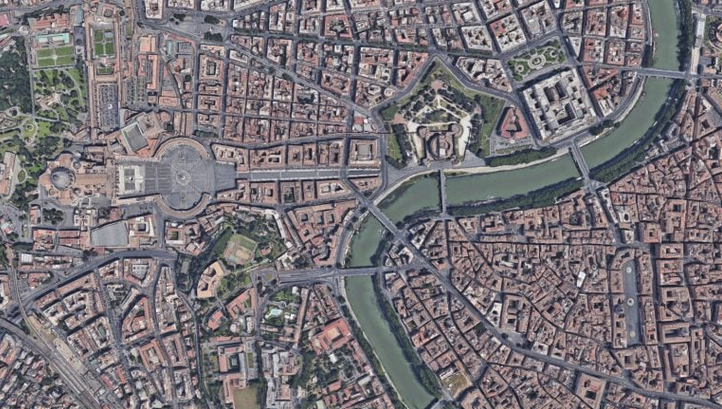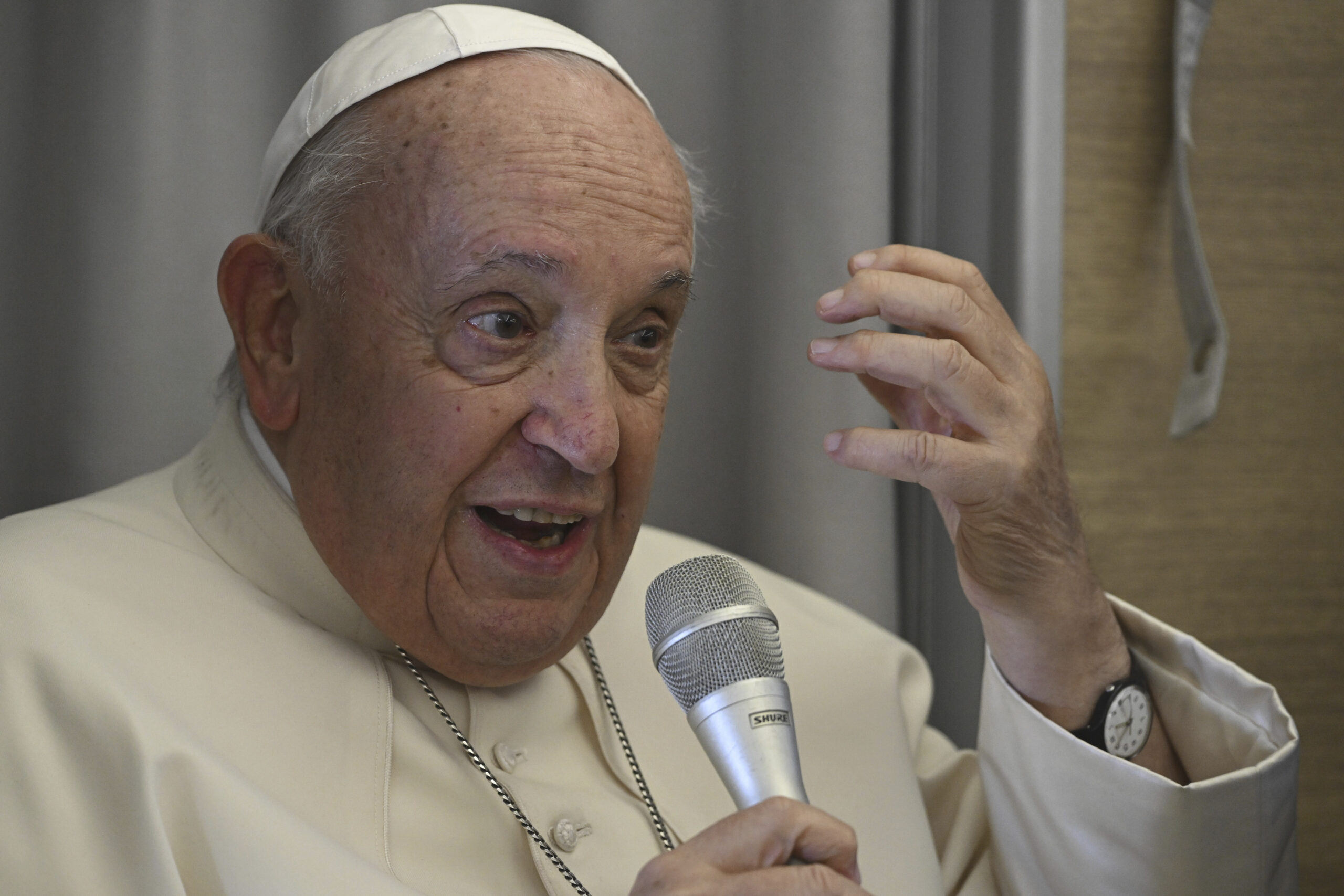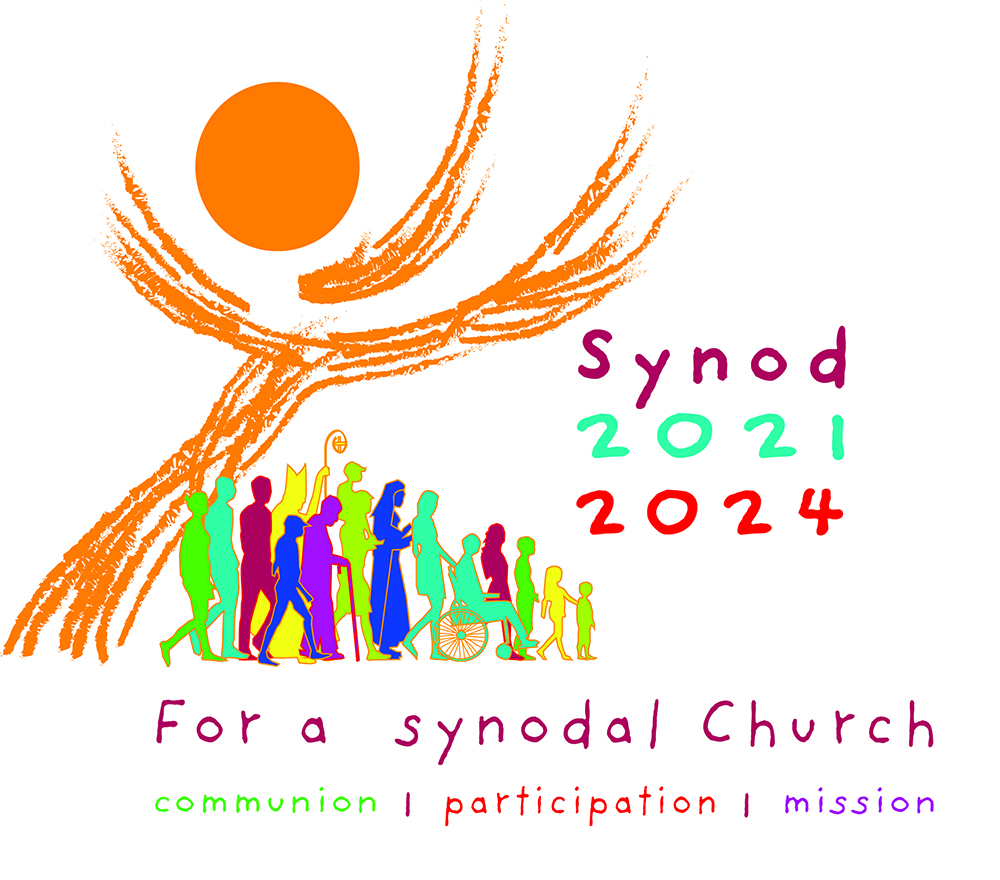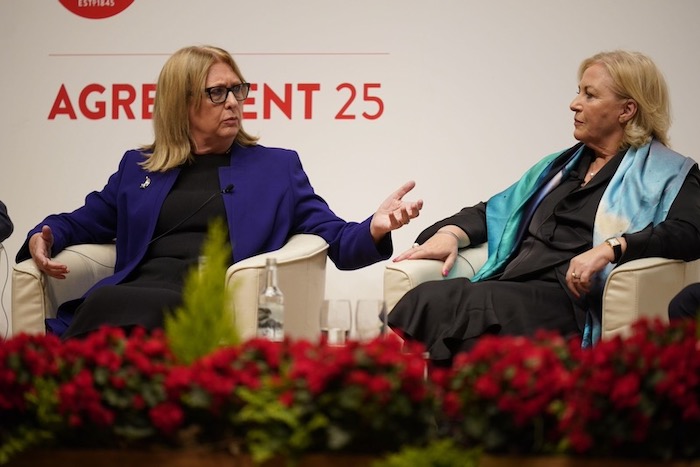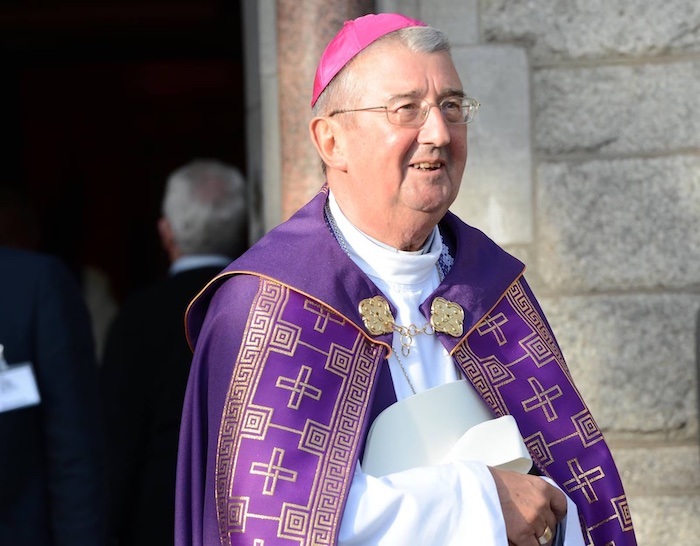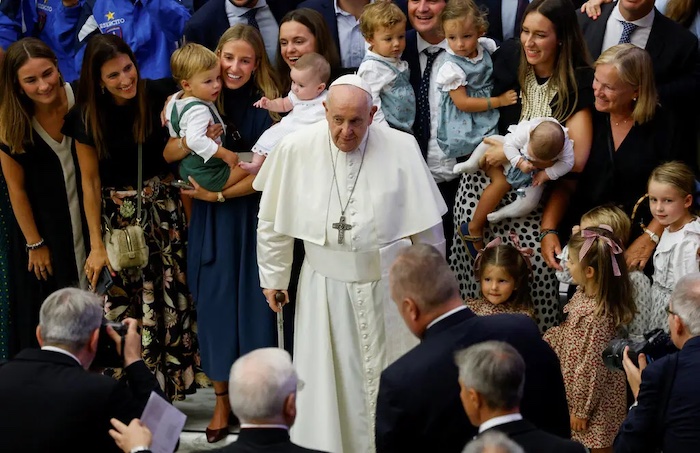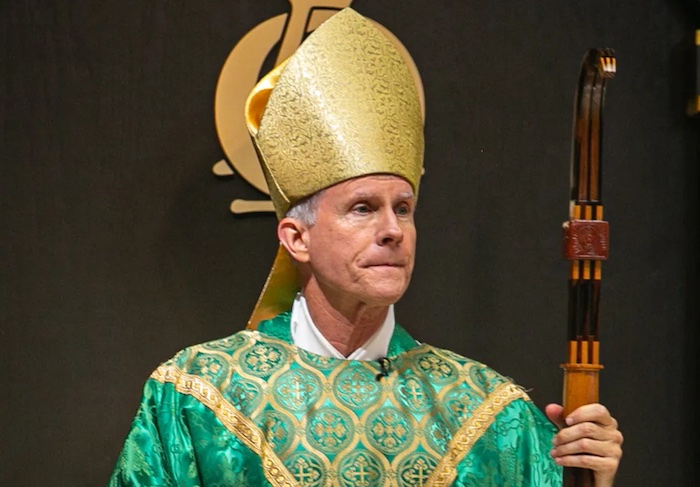
By The Pillar
At a meeting Saturday, Pope Francis discussed with Vatican officials the prospect of requesting the resignation of Bishop Joseph Strickland of the Diocese of Tyler, Texas, The Pillar has learned.
The pope met Sept. 9 with Archbishop Robert Prevost, OSA, head of the Dicastery for Bishops, and Archbishop Christophe Pierre, apostolic nuncio to the United States – both cardinals-elect.
Several sources close to the dicastery told The Pillar ahead of the meeting that the prelates would present the pope with the results of an apostolic visitation of Stickland’s diocese, conducted earlier this year, as well as subsequent public actions by the bishop, who has emerged as an outspoken critic of the Holy Father.
“The situation of Bishop Strickland is the agenda,” one senior official close to the dicastery told The Pillar, “and the expectation is that the Holy Father will be requesting his resignation — that will certainly be the recommendation put to him.”
While noting that the papal audience did not exclusively concern the Bishop of Tyler, who has previously accused the pope of having a “program [for] undermining the Deposit of Faith,” the official said that Strickland’s case was set to be the “primary point of discussion.”
“There are two aspects,” the official said, “there is the matter of the public scandal from all these comments about the pope and the synod, but there are also real problems in the diocese. Those were the focus of the visitation; there are concerns in the diocese about governance, about financial matters, about basic prudence.”
The official predicted that the pope was unlikely to decide to depose Strickland as bishop of his diocese, a canonically rare act, but told The Pillar that Pope Francis would be advised to encourage the bishop to resign.
“The consensus in the dicastery is that he will be asked to consider resigning,” the official said. “That has been the substance of discussion among the members.”
“Depending on how the bishop responds, the strength of that encouragement could be increased,” the official said, and cited the case of Bishop Richard Stika who announced his resignation as Bishop of Knoxville, Tenn., earlier this year after being informed he no longer had the confidence of either the Holy See or his own clergy.
Prevost, who has been prefect of the Vatican dicastery since April, leads the department responsible for recommending candidates for episcopal appointments to the pope.
The department also oversees disciplinary investigations and processes concerning bishops’ acts of governance under the norms of Vos estis lux mundi and Come una madre amorevole, laws brought in by Pope Francis to enhance accountability among the episcopate.
Prevost, a member of the Augustinian order and a Chicago native, is one of three American members of the dicastery, the others being Cardinal Blase Cupich of Chicago and Cardinal Joseph Tobin of Newark.
—
If Strickland is encouraged to resign, it is not clear how he would respond to such an invitation.
“I think that I went through this because I’ve been bold enough, and loved the Lord enough and his Church, simply preaching the truth,” Strickland said in July.
The Vatican probe was confirmed by The Pillar June 24, after rumors surfaced on social media, and the visitation was reported on the Church Militant website. The apostolic visitation, an official review of diocesan leadership and governance, was conducted by Bishop Gerald Kicanas, emeritus of Tucson, and Bishop Dennis Sullivan of Camden, who filed a report with the Dicastery for Bishops.
The visitation included questions about the governance of a diocesan high school, considerable staff turnover in the diocesan curia, the bishop’s welcome of a controversial former religious sister as a high school employee, and the bishop’s support for “Veritatis Splendor” — a planned Catholic residential community in the diocese, which has struggled with controversy involving its leadership’s financial administration and personal conduct.
Sources familiar with the investigation have previously told The Pillar that diocesan officials and clergy interviewed as part of the process were asked about the possibility of Bishop Strickland stepping down and canvassed for their views about suitable possible successors.
Strickland, 64, has been Bishop of Tyler since 2012; he was before that a priest of the same diocese.
The bishop has long been celebrated by many leaders in the pro-life movement, for his outspoken defense of human life, and opposition to abortion. The bishop is a frequent user of Twitter, with more than 135,000 followers.
In recent years, Strickland has been critical of Pope Francis, and was outspoken in his criticism of the Holy See’s approach to vaccines during the coronavirus pandemic, urging a more stringent position than the Vatican’s on ethical questions surrounding vaccine testing and embryonic cell lines.
In May, Strickland tweeted that he “rejects” Pope Francis’ “program undermining the Deposit of Faith” and he has built an increasingly national profile and following on a number of issues.

In June, Strickland left the U.S. bishops’ conference meeting in Orlando, FL., to lead a rally outside the stadium of the Los Angeles Dodgers baseball club, part of a wider public pushback against the team’s decision to honor the Sisters of Perpetual Indulgence, an LGBT activist group specializing in Catholic-themed drag acts.
Although both the USCCB and the Los Angeles archdiocese called for prayers and acts of spiritual reparation for the baseball event, the archdiocese also told Catholics that it had not given its “backing or approval” to a prayer rally organized by conservative groups, some of which have a controversial place in the American Catholic landscape.
USCCB president Archbishop Timothy Broglio also distanced himself from the prayer rally headlined by Strickland, telling The Pillar in June that he questioned such a demonstration’s effectiveness and said it posed a risk of potential physical confrontation.
In July, following the apostolic visitation, Strickland released a pastoral letter to his diocese in August in which he warned Catholics about “the evil and false message that has invaded the Church, Christ’s Bride.”
“In this time of great turmoil in the Church and in the world, I must speak to you from a father’s heart in order to warn you of the evils that threaten us, and to assure you of the joy and hope that we have always in our Lord Jesus Christ,” Strickland wrote, before enumerating several points of Church teaching which he said would be debated at the upcoming session of the Synod of Bishops in Rome.
Senior sources close to the Tyler diocese told The Pillar that the tone of the letter had surprised many senior clergy of the diocese. Several figures in the diocese confronted Strickland over the tone of the letter, The Pillar was told, and warned the bishop his position was becoming untenable.
“People were deeply alarmed” by the letter, one senior source close to the diocese told The Pillar, “but the bishop was having none of it. He was absolutely firm that he was saying what needs to be said and that he wouldn’t be silenced by anyone.”
Some sources in the diocese have told The Pillar that Strickland claims he has been directed by the Blessed Virgin Mary to continue his outspoken engagement on global Church affairs.
However, despite Strickland’s reportedly bullish response to concerns within the diocese, he released on Sept. 5 a second letter, which he called “a more in depth consideration of point number one as expressed in the Pastoral Letter I issued on August 22,” and in which he treated several of the same points but in less emphatic terms.
Since the apostolic visitation in Tyler, there has been considerable debate and commentary on the subject among U.S. Catholics.
Some Catholics — among them both Strickland’s supporters and detractors — have said the bishop’s outspoken commentary on Church issues has likely put him in the spotlight of Vatican officials. Some of Strickland’s supporters have said the visitation in Tyler seems to them like a political move.
Addressing the possibility that the visitation could lead to his being asked to resign, Strickland vowed in July that no matter the outcome, he expects to continue his public role in the Church’s life.
“They won’t stop me,” Strickland said. “When we’re speaking the truth of Jesus Christ, there is no politically correct. And the world can try to shut us down, but it won’t work.”
Complete Article ↪HERE↩!

